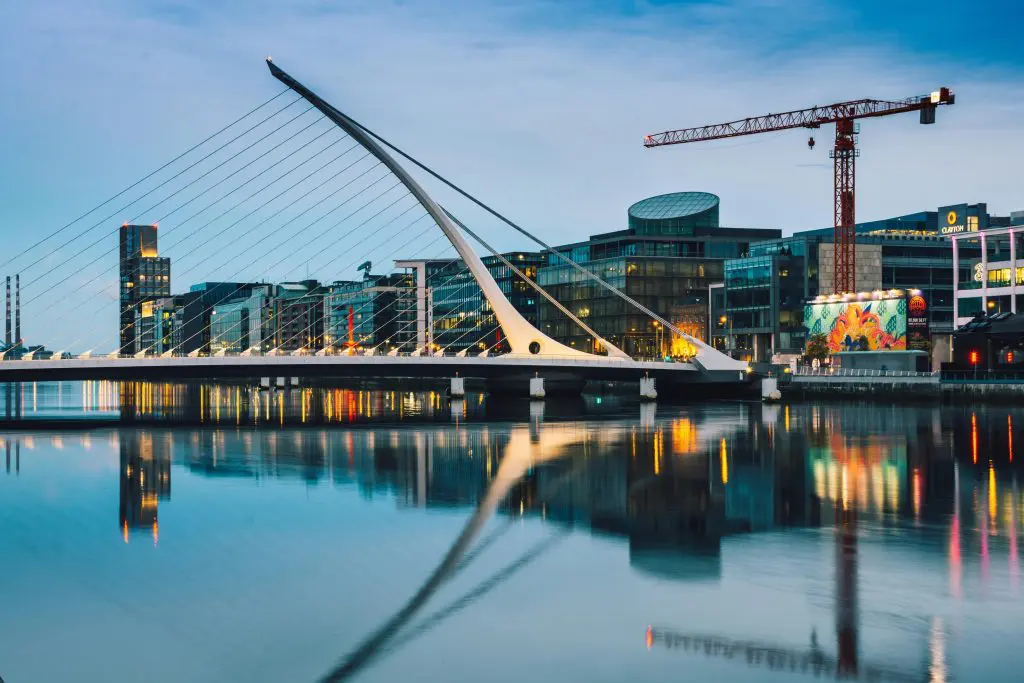
Importance of Climate Resilience in Ireland: How Irish Cities Are Redesigning As climate change evolves into one of the most pressing global challenges, urban centres must adapt to their new realities. Ireland, with its picturesque landscapes and vibrant cities, is no exception to this trend. In recent years, Irish cities have been at the forefront […]
As climate change evolves into one of the most pressing global challenges, urban centres must adapt to their new realities. Ireland, with its picturesque landscapes and vibrant cities, is no exception to this trend. In recent years, Irish cities have been at the forefront of redesigning urban spaces for climate resilience. This article delves into how Dublin, Cork, and Galway are transforming their urban fabric to combat climate change.
Climate resilience refers to the ability of an urban system to absorb shocks related to climate change while maintaining essential functions. This includes anticipating, preparing for, and adapting to adverse climate events such as flooding, heatwaves, and rising sea levels.
Irish cities are increasingly vulnerable to climate-related threats. Rising sea levels are encroaching on coastal areas, while heavy rainfall has led to significant flooding. The need for innovative redesigns in urban planning has never been more important for ensuring a sustainable and liveable future.
The following initiatives are being actioned or focused on in Dublin.
Dublin is leading the charge in implementing green infrastructure as part of its climate resilience strategy. Initiatives such as green roofs, vertical gardens, and urban tree canopies serve multiple purposes: they reduce the urban heat island effect, enhance biodiversity, and manage stormwater.
In response to frequent flooding, Dublin has launched integrated flood risk management strategies. The “Dublin City Flood Risk Management Plan” aims to create flood defence systems that not only protect infrastructure but also restore natural flood plains. These approaches not only provide protection but enhance the city’s green spaces.
Cork’s urban transformation focus includes:
Cork has invested heavily in promoting sustainable transport solutions to minimise its carbon footprint. With expanded cycling lanes and pedestrian pathways, the city encourages residents to opt for walking and cycling as alternatives to cars. This shift not only contributes to healthier lifestyles but alleviates congestion and reduces emissions.
Complementing its focus on mobility, Cork has undertaken comprehensive urban regeneration projects in derelict areas. Revitalising these spaces enables the creation of community hubs that are more sustainable, vibrant, and climate-resilient. New developments prioritise energy efficiency and sustainable materials, setting a standard for future construction.
Galway, meanwhile, is particularly keen on:
Galway has embraced a unique approach by prioritising community engagement in climate resilience efforts. The “Galway City Public Realm Strategy” is a blueprint for transforming public spaces, incorporating input from residents about their needs and aspirations.
Recent climate adaptation projects in Galway focus on enhancing the urban environment while maintaining its unique character. Initiatives include improving the city’s drainage systems, creating more green spaces, and promoting sustainable local agriculture within urban settings. These projects not only tackle climate issues but also engage the community in meaningful activities.
Belfast, Northern Ireland’s capital, is also taking decisive steps toward climate resilience:
Belfast has faced challenges with river flooding, particularly along the River Lagan. The city is implementing a mix of natural flood management and engineered defences to protect infrastructure and improve urban green spaces.
The city has invested in expanding public transport networks and cycling infrastructure, reducing reliance on private cars and contributing to lower carbon emissions.
Belfast is upgrading parks, planting trees, and retrofitting public buildings with energy-efficient systems, integrating environmental sustainability into city planning.
A significant driver behind the transformations in Irish cities is supportive national policy frameworks such as the “National Adaptation Framework.” This document outlines the government’s commitment to advancing local-level climate resilience initiatives. Local authorities can align their strategies with national objectives, fostering collaboration between communities and decision-makers.
To facilitate sustainable urban design, Ireland’s government offers funding and incentives for projects focusing on climate resilience. Grants for retrofitting, renewable energy projects, and sustainable transport initiatives have encouraged cities to invest in a greener future.
As urban centres continue to develop, a holistic approach to urban planning is necessary. Incorporating climate resilience into the fabric of cities will require collaboration across sectors, including transportation, public health, and housing.
Emerging technologies will play a key role in shaping the future of climate-resilient urban design. Smart city initiatives harness data to optimise energy use, traffic flow, and resource management, thus enhancing sustainability efforts.
Engaging younger generations in conversations about sustainable urban futures is crucial. Schools in Irish cities are incorporating climate education into their curricula, fostering a culture of sustainability that extends beyond the classroom.
The journey towards sustainable urban futures in Ireland is marked by innovation, community engagement, and a commitment to climate resilience. As Dublin, Cork, Galway, and Belfast demonstrate, redesigning urban spaces to meet the challenges of climate change is not only possible but essential. By embracing green infrastructure, sustainable mobility, and community-led initiatives, Irish cities are setting a precedent for others to follow. As the impacts of climate change become increasingly evident, these efforts will contribute significantly to safeguarding the future of urban life in Ireland and beyond.
By taking proactive measures and engaging all stakeholders, Irish cities are not just responding to climate challenges, they are defining their future. With the right strategies and commitment, sustainable urban resilience will be at the heart of Ireland’s cities for generations to come.